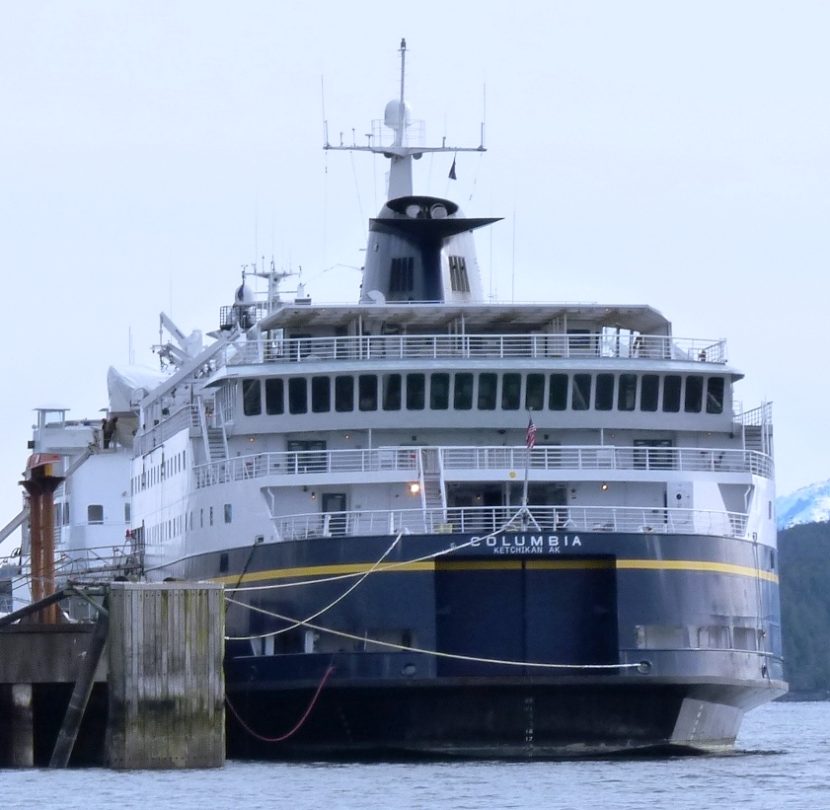
The cash-strapped Alaska Marine Highway System plans to tie up its largest ferry. State transportation officials confirmed that the MV Columbia will not sail past Sept. 4.
“The vessel will remain out of service for the winter and the marine highway system will assess options for future use of the vessel when it looks at the results of the marine highway system economic restructuring analysis,” Alaska Marine Highway System spokesperson Aurah Landau said in a statement to CoastAlaska.
The 418-foot ferry primarily serves Lynn Canal communities and through the Inside Passage to Ketchikan; Prince Rupert, British Columbia; and Bellingham, Washington.
Landau said the MV Malaspina and MV Matanuska are expected to substitute for the larger vessel for a projected monthly cost savings of around $400,000.
“The M/V Columbia is more expensive to operate than other vessels that can substitute for it,” she wrote in a followup statement Tuesday.
The state plans to assign the ferry’s 62 crew members to other vessels. The head of the ferry system’s largest union said the 45-year-old vessel is popular with workers and passengers alike.
“They call her the ‘queen of the fleet.’ She’s a beautiful ship,” Inlandboatmen’s Union regional director Trina Arnold said Monday. “A lot of the crew members that work there, they’re out there half their life.”
Arnold said there’s concern among ferry workers that continued cost-cutting will make it difficult for the marine highway to fulfill its core mission of connecting communities as the fleet continues to shrink.
“It just feels like we’ve already lost the Taku, we lost the Fairweather and the Chenega,” Arnold said, “and it just seems like we keep losing a vessel, and the communities are hurting for that.”
The Taku was sold for scrap last year. The fast ferries Fairweather and Chenega are in the process of being surplussed and sold.
The Legislature appropriated about $40 million less to the ferry system compared to last year. But it’s not yet known where in the system those cuts will have the biggest impact.
This story has been updated with additional comments from Alaska Marine Highway System spokesperson Aurah Landau.
